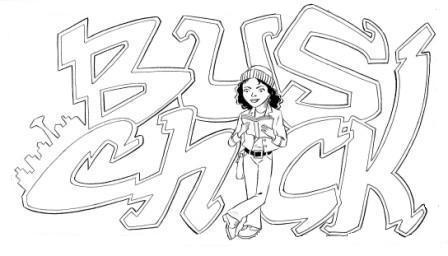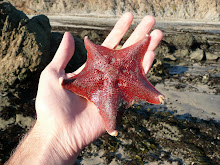Volunteer Energy and Political Tipping Points
By Paul Rogat Loeb
On election day four years ago, I was canvassing in home state of Washington, alternately knocking on doors for gubernatorial candidate Christine Gregoire and breaking to call Ohio and Florida. After three recounts, Gregoire won by 129 votes. I had no idea my state election was so close, but I did get three people who wouldn’t have otherwise voted--one forgot it was election day, one needed a ride to the polls, and a third didn’t know how to turn in her absentee ballot. If you multiply my efforts by those of thousands of other volunteers, we clearly helped make the difference.
The same happened in 2006. During the election’s final weeks, I spent about 30 hours calling through MoveOn’s Call for Change program, contacting voters in Virginia, Missouri, Montana, and other states with key Senate and Congressional races. Grabbing spare moments where I could, I dialed my way across the country, convincing maybe 20 people who wouldn’t have otherwise to back the Democratic challengers. Some initially resisted saying, “They’re all the same. They’re all corrupts.” Or “My vote won’t matter so why bother.” But I convinced them to vote, and added a few with election-day reminders. Later I read that MoveOn had 120,000 volunteers. If each had half the impact of my efforts, that meant over a million votes, in a season when US Senate seats swung on margins as close as Montana’s 3,500 votes, Virginia’s 9,000, Rhode Island’s 29,000, or Missouri’s 48,000. Our common efforts again tipped the balance.
It’s easy to think of our individual election volunteering as insignificant. But when enough of us act even in small ways, we can have a powerful impact. Studies have found that if you talk to a dozen people by going door-to-door, you’ll likely add at least one new voter for your candidate, a ratio that tends to hold true from local to federal elections, so long as you’re working in reasonably receptive neighborhoods. Phone outreach can have a similar impact, though you need to talk with more people for a comparable result. Imagine what a few hundred more volunteers could have done to shift Florida’s 537-vote official margin in 2,000, even with all the Republican machinations.
individual actions can be multiplied on both sides. In 2004 a friend was overseeing a cluster of Florida precincts for John Kerry. He’d exceeded his target for turnout, and was feeling guardedly hopeful. Then a couple hundred people showed up en masse, many holding Bibles. They’d been mobilized by Los Angeles and Omaha phone banks, calling fundamentalist congregations. Those who called had every right to do so, and their efforts, alas, helped reelect George Bush.
So why don’t more of us participate, or participate more? Between now and the election, far too many of us will spend plenty of time reading political articles, blogs and polls, obsessing on the latest twists and turns in the headlines, and rooting for our candidate as if for a favorite sports team—while doing relatively little to change the outcome. We can do more than be passive spectators.
Many of us live in states where the presidential race is largely settled, although the popular vote mandate will matter in terms of political leverage, there are numerous close Senate, Congress and governor’s races, not to mention important state ballot initiatives. Even if you don’t live in Virginia or Colorado, Ohio, North Carolina or Pennsylvania, you can go to the campaign websites and find lists of people to call in key swing states, scripts through which to call them, and step-by-step explanations to walk you through the process. You really can do it from the comfort of your home or apartment--or as part of a group phone bank, if the support makes it easier. Getting involved is more challenging in some states than others, but still an opportunity to affect the long arc of history at a potential key turning point.
Even in the ground-zero battlegrounds, I’ve met people who passionately follow the contest, yet hold back from actively participating. When I was in Cleveland last week, a woman raised her hand and said “I’ve been walking neighborhoods for Obama, but my friends don’t want to join me, even though they care just as much about the election. They say they don’t like rejection.”
I asked if anyone in the audience enjoyed rejection. Surprisingly, no one did. But the woman who had canvassed said the time she spent was actually pretty decent. She got some butterflies at first—it’s always hard approaching strangers. But once she got into the swing, she enjoyed it. She even had some thoughtful conversations, once she left the necessary training wheels of the script.
Many of us also hesitate due to a perfect standard where we feel we need to be totally eloquent or our efforts will be worthless. My retired neighbor considered calling for Obama, then worried that he wasn’t as articulate and persuasive as he used to be, so decided not to. But our efforts don’t have to be perfect, they just have to be heartfelt, and we have to keep at them.
With Obama opening up a steadily increasing lead, it’s easy for those of us to support him to get complacent. But this is a volatile electorate—a little over a month ago, McCain led with his Sarah Palin bounce. So while the polls are encouraging, given economic meltdown, attack ads, racial issues, and potential voter intimidation and suppression, we’d be wise to view this as an election where our actions really could determine the outcome.
Most of us reading this essay will vote. And maybe most of our friends will as well. But in a politically divided nation, victory may well go to the side that turns out the greatest numbers of more marginal supporters, including those who are newly registered and uncertain about the process, or who doubt their vote will matter. Particularly when reaching out to those who haven’t traditionally voted, getting people to the polls isn’t something that can be done by just running more ads. We have to make the phone calls, knock on the doors, and remind people as many times as necessary of the differences between the candidates and the impact they could make with their vote. This election may well be won with presence and persistence. It might just be in our hands.
Paul Rogat Loeb is the author of The Impossible Will Take a Little While: A Citizen's Guide to Hope in a Time of Fear, named the #3 political book of 2004 by the History Channel and the American Book Association. His previous books include Soul of a Citizen: Living With Conviction in a Cynical Time. See www.paulloeb.org To receive his articles directly, email sympa@lists.onenw.org with the subject line: subscribe paulloeb-articles




































